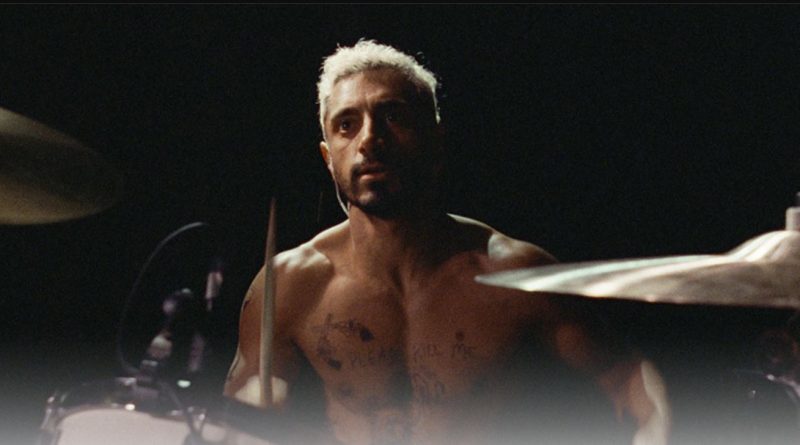‘Sound of Metal’ Review
A psuedo-addiction drama about a musician who is slowly losing his hearing sounds like pretty run of the mill Oscar-bait, but “Sound of Metal” manages to hold its own thanks to strong performances and clever directorial choices.
Riz Ahmed has received a lot of acclaim for his performance as Ruben Stone, a drummer for an avant-garde metal duo and recovering addict who is going deaf due to severe hearing damage. While his performance isn’t quite transcendent in the way that some other outlets describe, it is still very good and arguably the best of his still evolving career. Riz has always had a knack for playing frantic people who live life on a knife’s edge, but does so with much greater depth and nuance here. 2020 has been something of a weak year for movies, which may allow Riz to rise to the top of the awards race, but in another year he might get lost amongst a broader field of contenders.
Technically, the film appropriates the standard visual language of most Oscar-bait slice-of-life dramas. The film uses flat, natural lighting and handheld camerawork to imbue the scenes with a sense of “gritty realism” and enhance the drama, balanced with still, Yasujiro Ozu-style establishing shots to set a serious and contemplative mood. These techniques used in tandem would have been revolutionary 50 years ago, but they seem trite now. One wonders if they are a conscious choice or an obligatory filmmaking shorthand at this point. However in the sound department, the film does shine. The sound mix alternates between an “objective” mix, allowing the audience to hear scenes as they really are, along with a “subjective” mix that allows the audience to hear from Ruben’s perspective. Director Darius Marder does a great job of picking his spots for when to alternate between the two mixes and the sound team does excellent work with the subjective mix, evolving it as the story progresses and Ruben’s hearing deteriorates before being partially restored with hearing implants, which brings some of the most interesting sound design in recent memory.
Narratively, the movie follows a fairly tired addiction drama formula, but manages to make some smart choices that keep things interesting. Ruben spends much of the movie in a rural rehabilitation center for deaf addicts, and the transition from touring life to the rehab center would be treated very differently in a lesser movie. “Sound of Metal” does not romanticize deafness as a more cliched film might, nor does it romanticize “the simple life” as many other movies have. Rather it portrays life as chaotic, full of unforeseen problems that must be dealt with and irreversible changes that must be embraced. Ruben’s problems are not solved by his going deaf, nor is his deafness ever cured. He simply must adapt or be destroyed, as we all must when faced with life-changing obstacles. To that end, “Sound of Metal” is about that adaptation and about how fulfillment in life must come from within, since our selves are always with us and they are the only thing we can control.
Despite the name, “Sound of Metal” is bit lacking in the metal department, and it also borrows a great deal from other indie dramas. Even with that, the movie is well made and brings just enough of its own flavor and some unique ideas to make it worth a watch.




